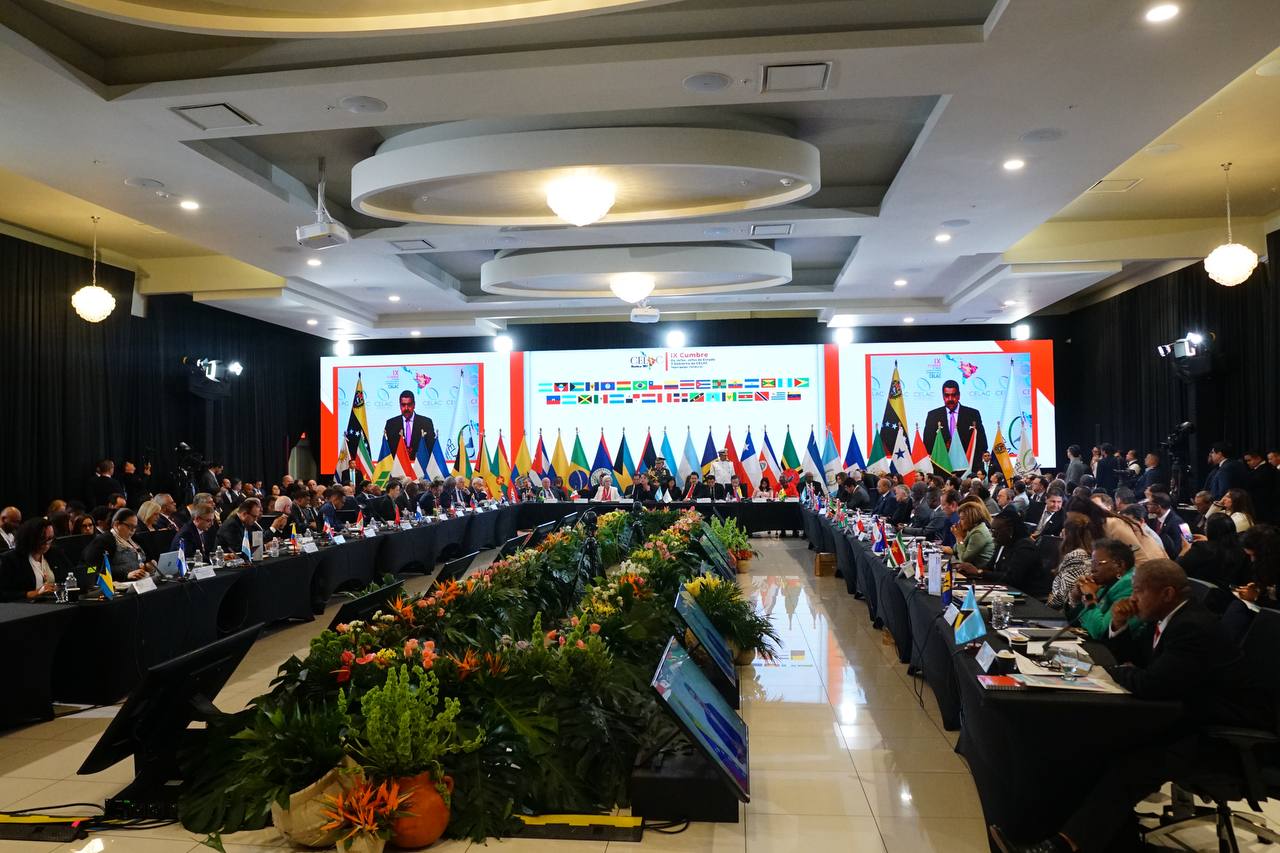Caracas, April 9, 2025 — This Wednesday, during the 9th Summit of the Community of Latin American and Caribbean States (CELAC) held in Tegucigalpa, Honduras, participating countries addressed key regional issues, including regional unity and migration.
With the participation of 33 delegations from different countries, the historic fraternity among the nations present was underscored.
Honduran President Xiomara Castro emphasized that sister nations cannot move forward in isolation, nor unite based on past mistakes.
“We condemn the blockade against Cuba, recognize the sovereign rights of the people of Venezuela, the sovereignty of Nicaragua, acknowledge the resistance of Haiti in its demand for a sovereign homeland, and condemn the genocide against Palestine,” she stated.
She also recognized the rights of other peoples represented at the summit, expressing solidarity with the humanitarian crisis in the Gaza Strip, as well as with Haiti’s right to chart its own path free from foreign interference.
Venezuelan President Nicolás Maduro, in a video message, supported the statements made by the attending countries and affirmed, “Colonialism is not an option for our America. We hope to continue advancing toward a united, peaceful, and democratic Latin America and Caribbean.”
He denounced the persecution faced by Venezuelan migrants.
“All our migrants are being treated like criminals. We denounce, from Venezuela, the law that directly criminalizes any migrant and sends them to concentration camps that operate as prisons in Ecuador. Imagine what CELAC could achieve if we came together as a powerful bloc of unity (…) They have tried to divide us. It is time to rise and speak with one voice.”
He asserted that CELAC must strongly resume the convening of Ministerial Councils, “as Honduras has done through its extraordinary presidency.”
Mexican President Claudia Sheinbaum joined in the condemnation of the blockades against Cuba and Venezuela, and emphasized that migrants have driven the U.S. economy.
Colombian President Gustavo Petro assumed the pro tempore presidency of CELAC and stated that no migrant should arrive at a prison in handcuffs to be treated as a criminal, because they are not. Latin America must not lower the banner of human dignity.
Petro also called on Latin America to continue upholding the banner of human dignity. He recalled being insulted for stating that “migrants are not criminals and should not arrive in chains,” referring to the historical legacy of human trafficking and slavery.
He added that if “even one migrant arrives in chains on our soil, we are not only returning to the era of slavery—solitude is the chain.” He further remarked that Latin America must never lower the banner of human dignity, “because that is what gave birth to us as Republics.”
“None of us is a monarchy. The discussion on migration cannot happen in isolation; it must be collective, shared, part of an agenda of assistance and collaboration, and it could yield multilateral outcomes,” he stated, adding that “the war on drugs is no longer Colombia’s problem alone—it is a multinational, global issue.”
Petro proposed establishing a multilateral agenda to address the challenges of migration and drug trafficking, and affirmed that the root cause of migration is poverty induced from the Global North.
On the other hand, Brazilian President Luiz Inácio Lula da Silva stated that Latin America and the Caribbean are currently facing one of the most critical moments in history.
“The interference of major powers has been—and remains—a shadow over us. Migrants are deported in degrading conditions. The current moment demands that we set aside our differences.”
He further added: “Migrants are criminalized and deported in degrading conditions. Arbitrary tariffs destabilize the international economy and drive up prices. History teaches us that trade wars have no winners.”
He stressed that the region’s autonomy “is once again under threat.” “Attempts to restore old hegemonies loom over our region. Freedom and self-determination are the first victims of a world without multilaterally agreed rules,” he noted.
Bolivian President Luis Arce highlighted the need to reaffirm the commitment to a united Latin America.
“When we are fragmented, we are weak, and the powerful take advantage. CELAC must become a space for coordination, where we can speak with one voice and without interference.”
He likewise rejected and condemned the criminalization of migration, mass deportations, and inhumane treatment of migrants, as these violate human rights.
